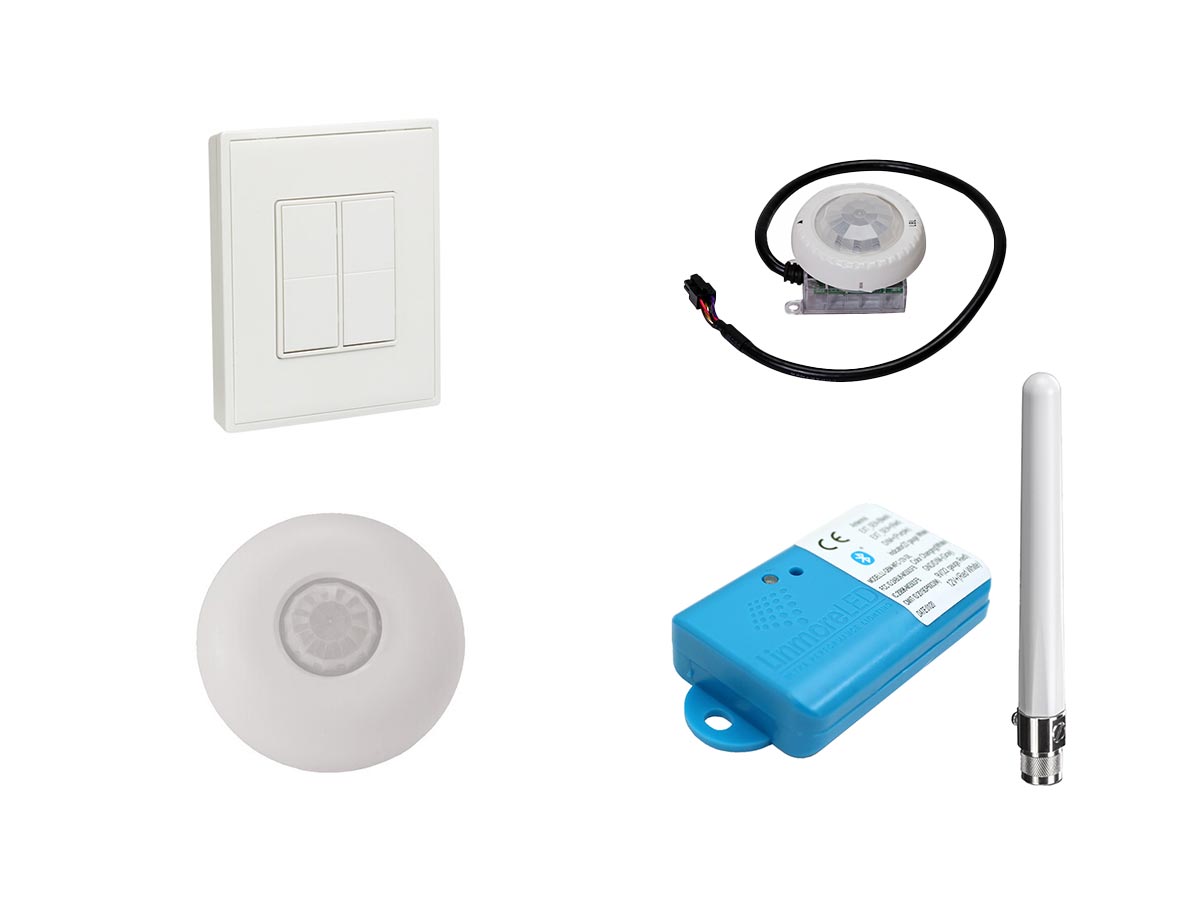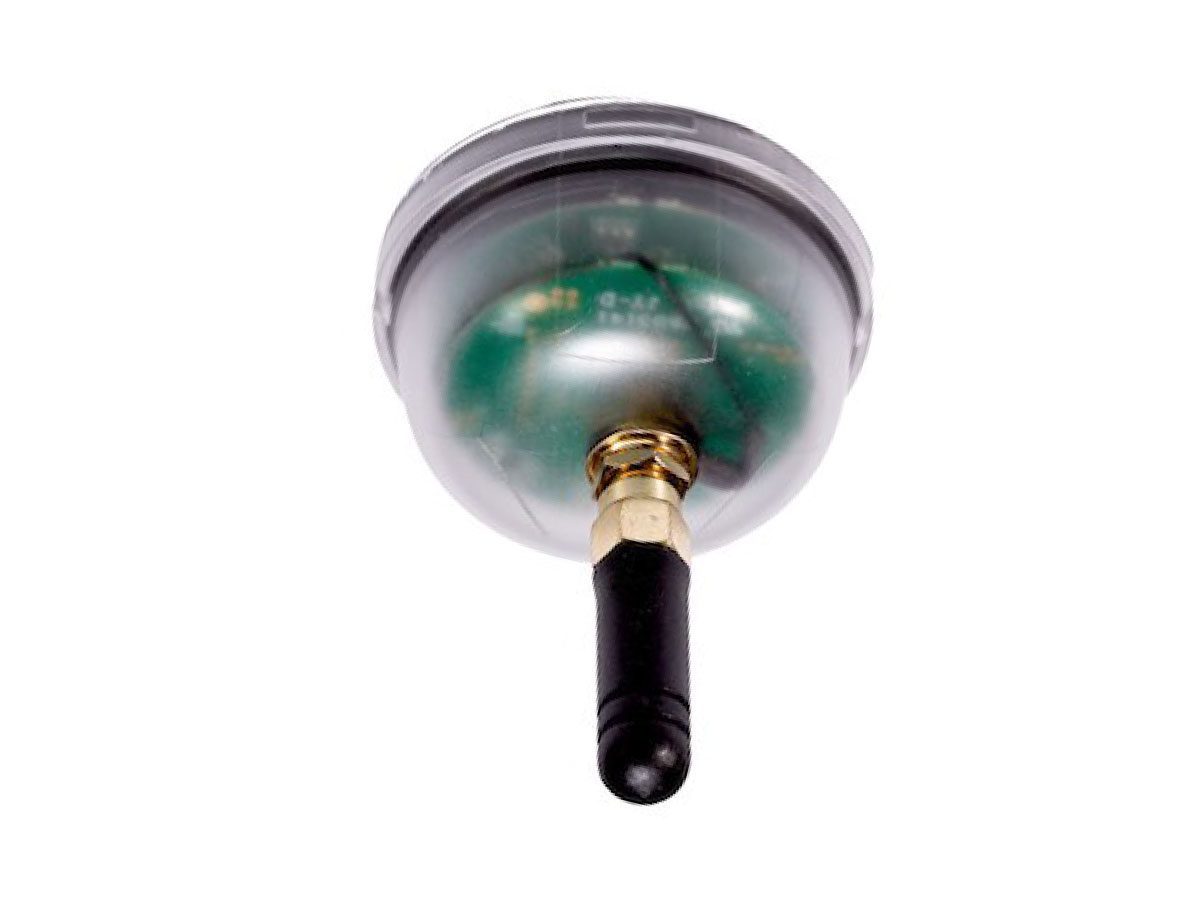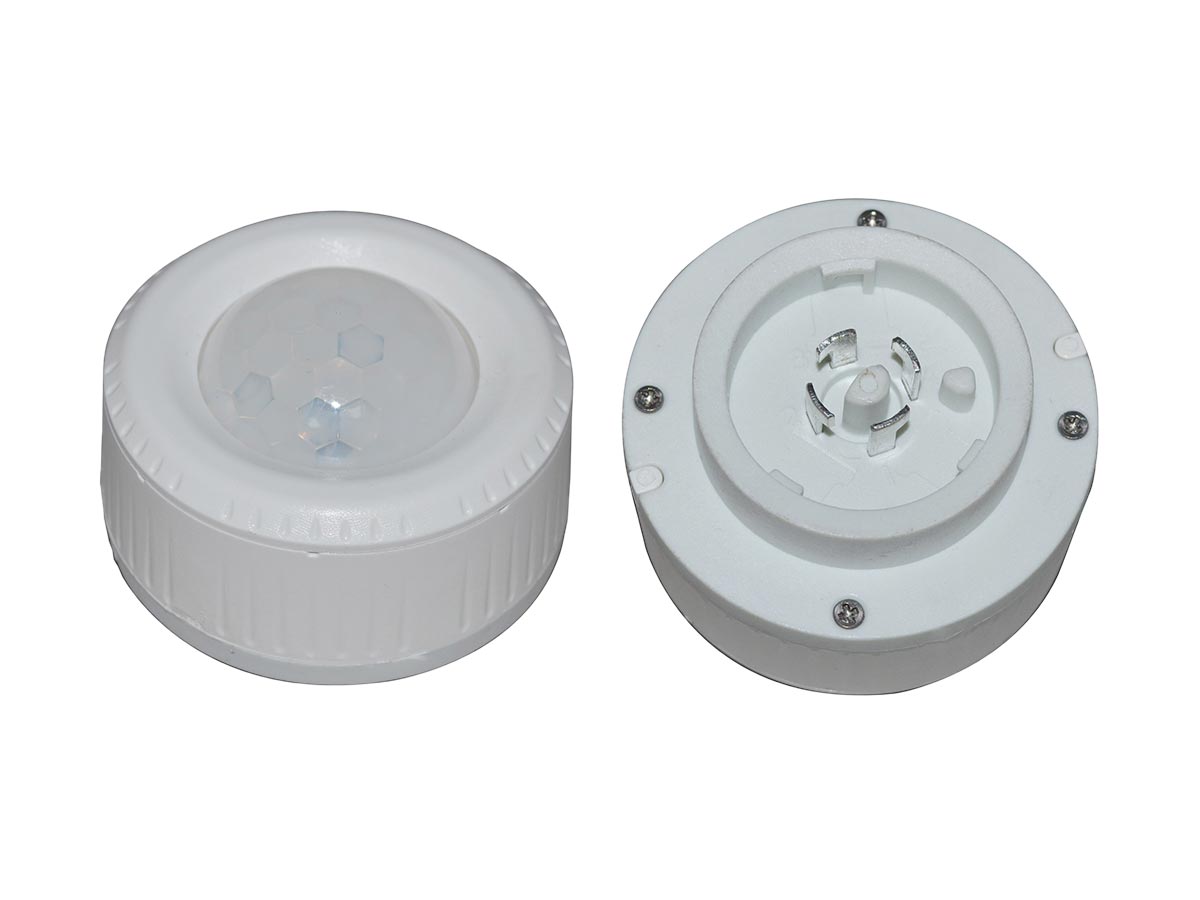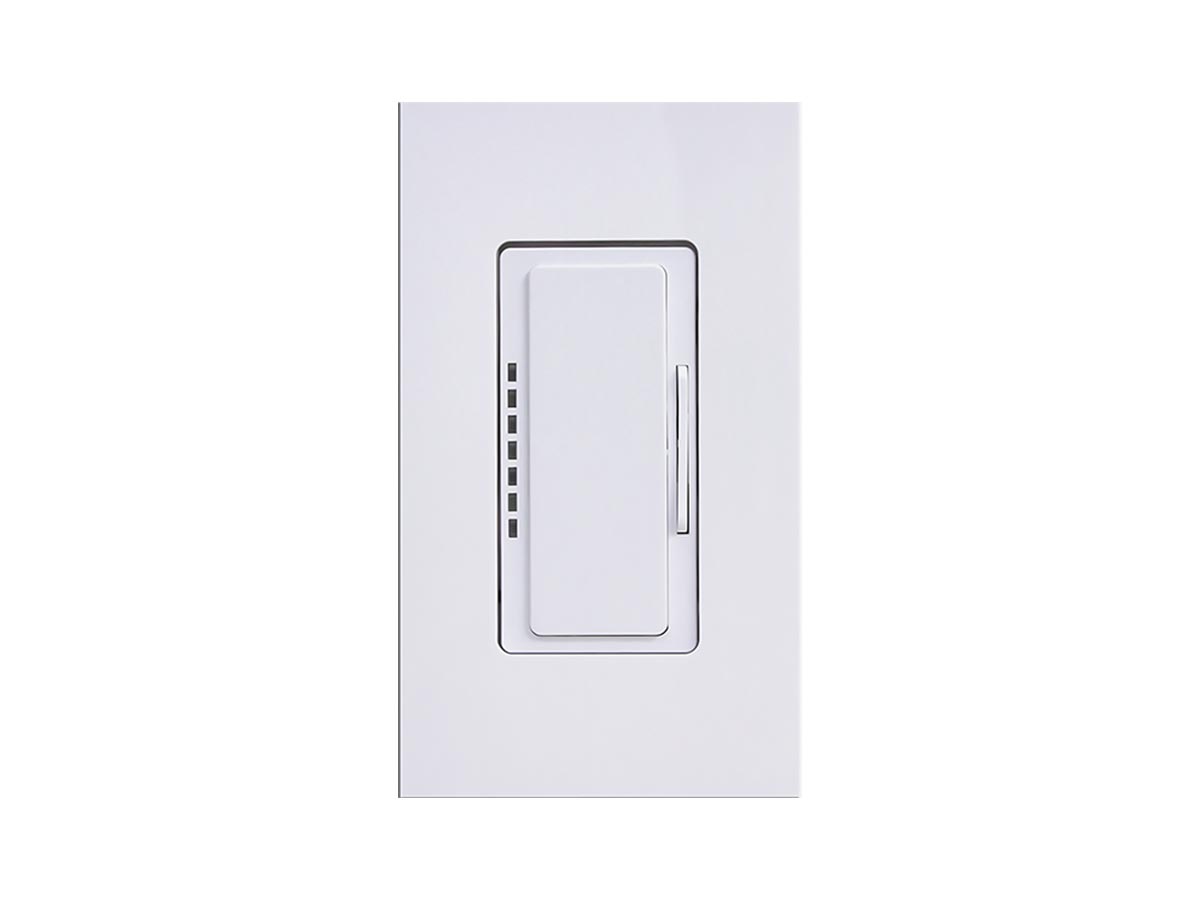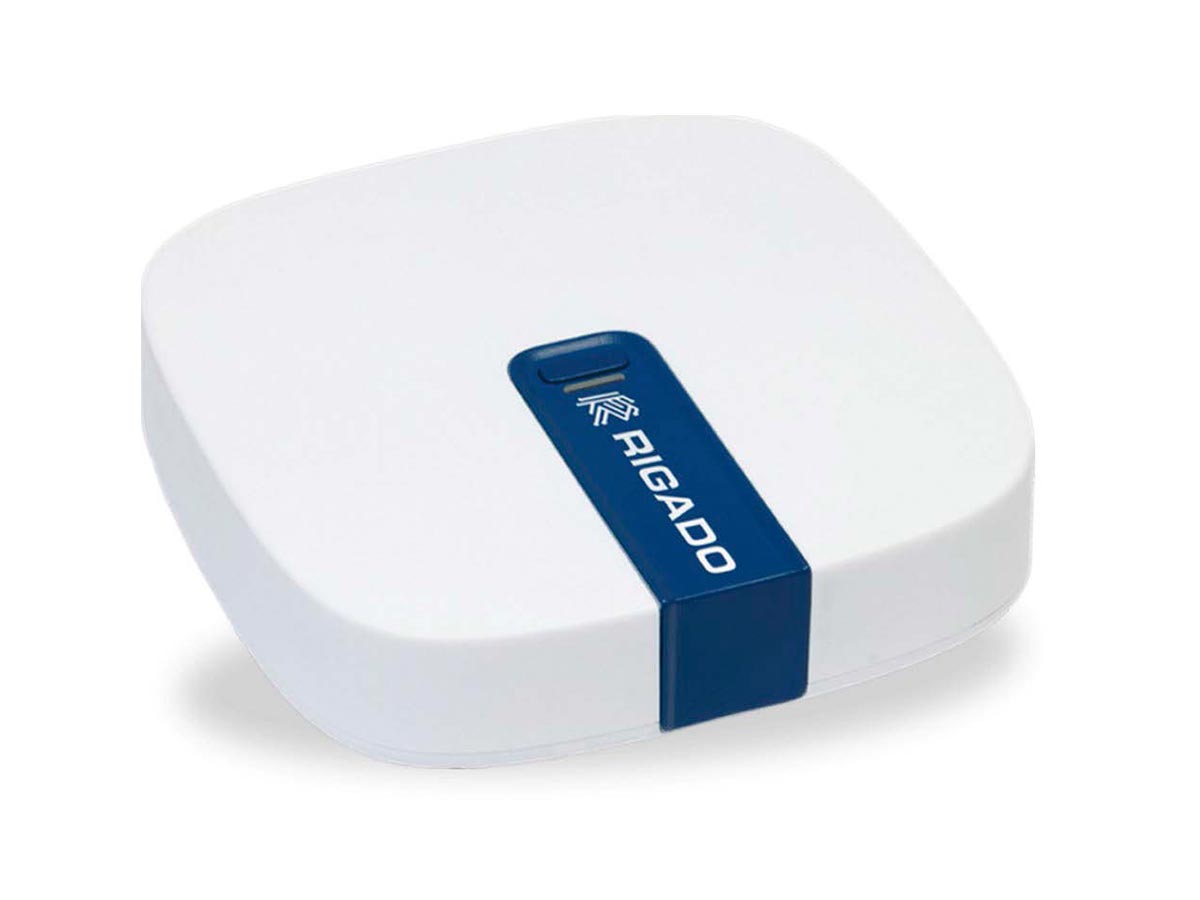
Bluetooth® NLC - Wireless Lighting Controls
UltraLink Support
Helpdesk portal
UltraLink Documents
For pre-sale, installation, and activation
Download iOS App
Only available for mobile devices
WHAT IS ULTRALINK?
Linmore LED’s UltraLink, powered by Silvair, is an intelligent lighting control system that uses Bluetooth Low Energy (BLE) communications at 2.4 GHz in a Mesh topology. The complete mesh network system is comprised of wireless fixture controllers, occupancy sensors, and wireless switches.
Main Benefits:
- UltraLink is a non-proprietary, open standard, and DLC-qualified networked wireless control system.
- Qualified by the Bluetooth SIG means your components will work with other qualified Bluetooth NLC devices from other vendors.
- Brings freedom of choice, transparency, and security that can never be reached by proprietary technologies.
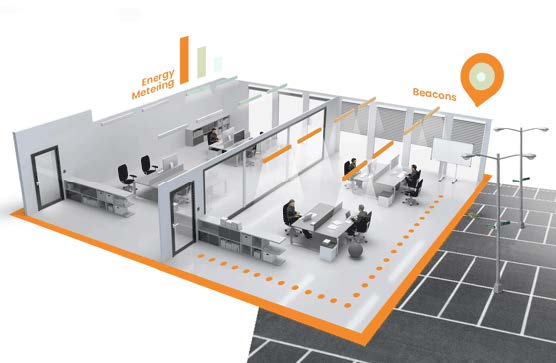
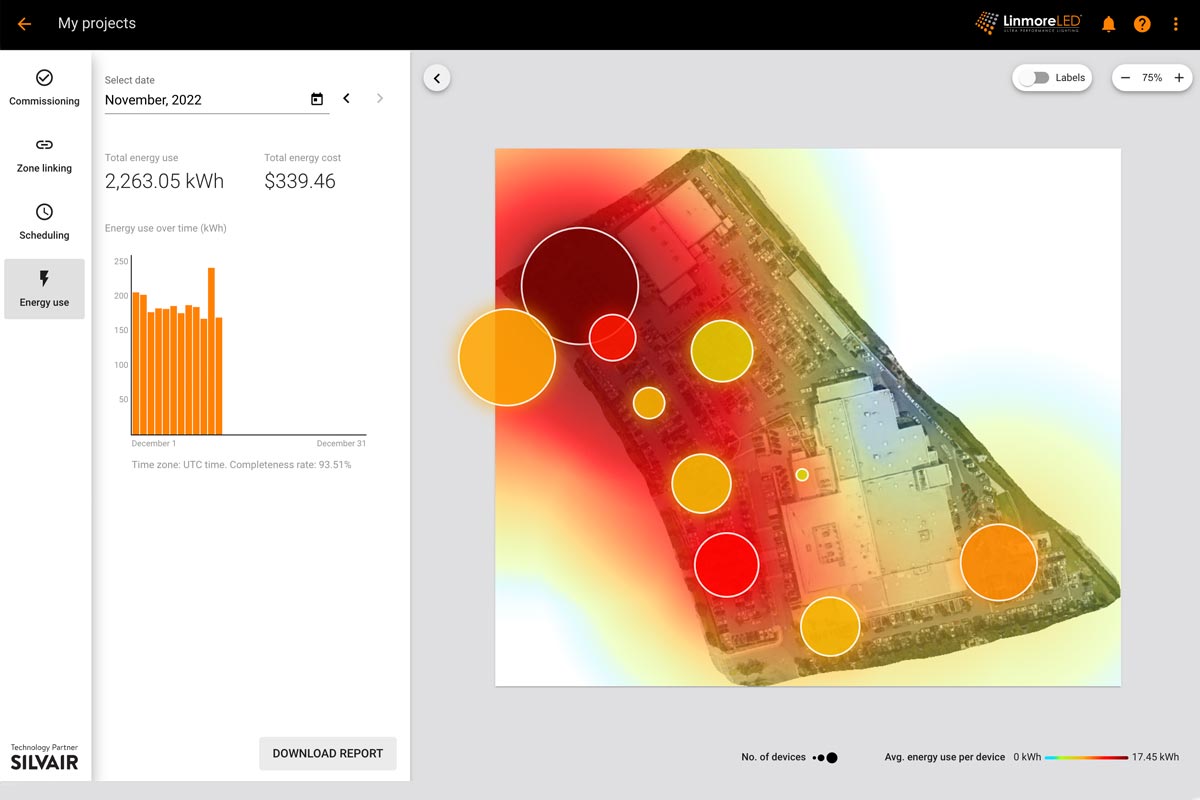
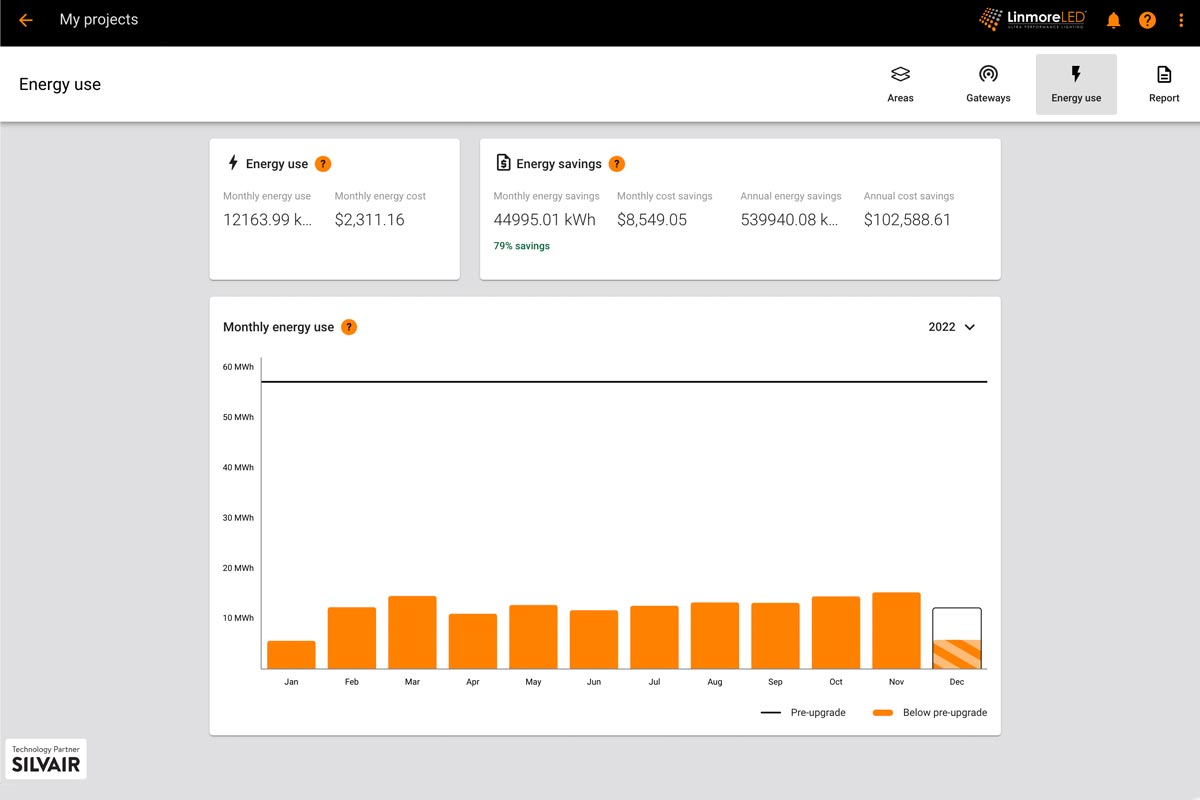
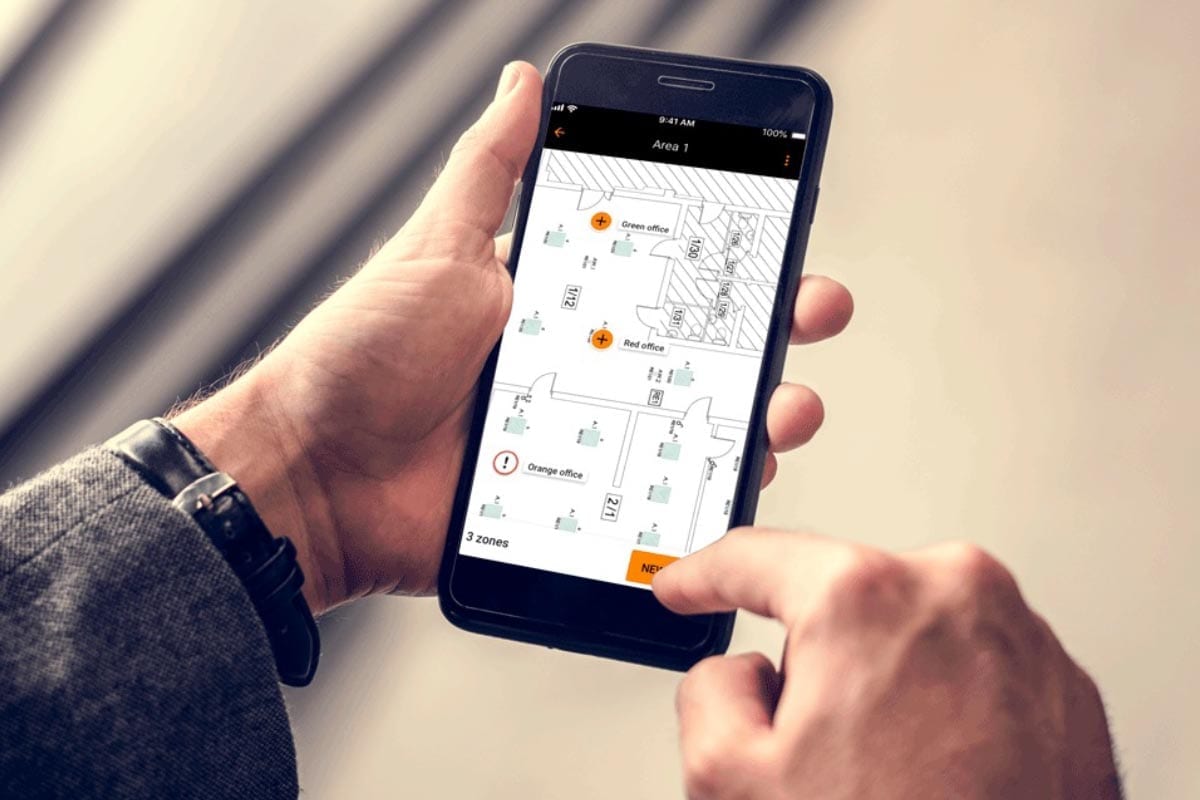
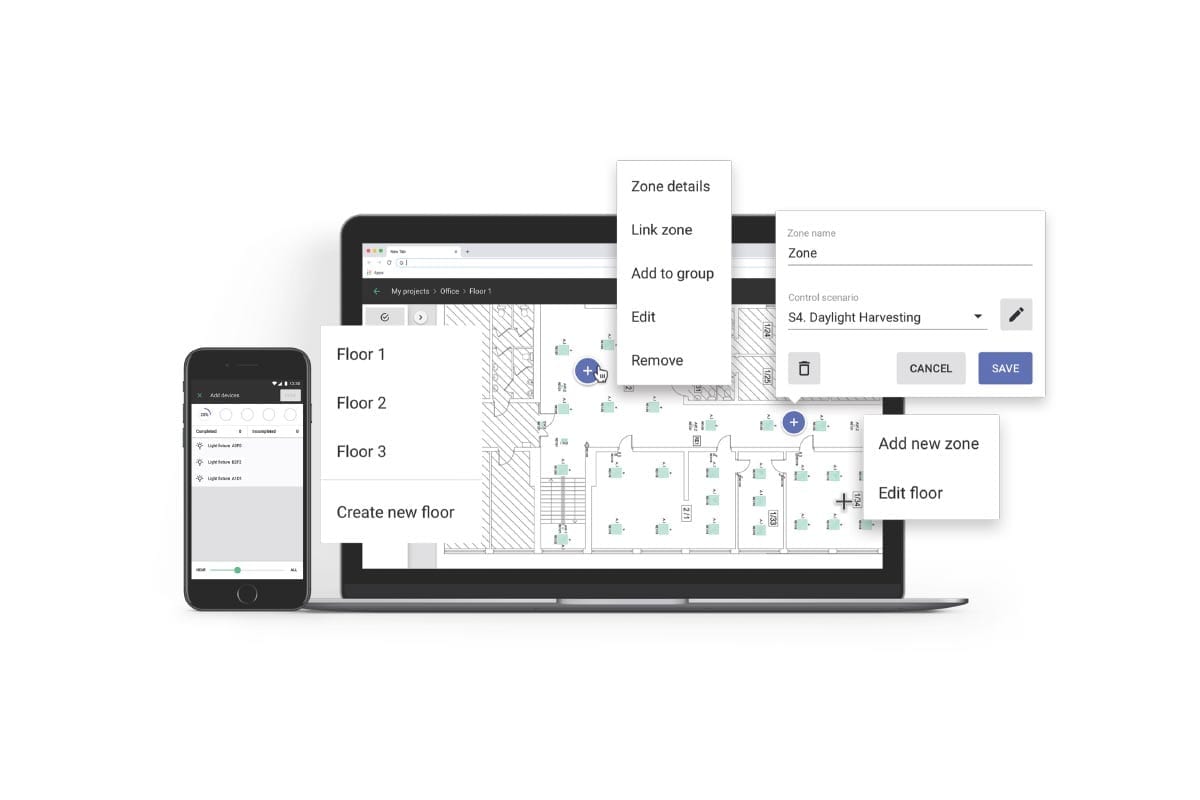
UltraLink Projects



Features
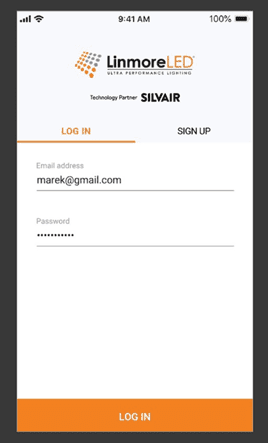
Functionality
- Energy Dashboard
- Heat Mapping by Occupancy
- Heat Mapping by Energy
- Scheduling
- Scenes
- Occupancy sensing
- Lighting zones / grouping
- High-end and low-end trim
- Manual control
- Timer switch control
- Vacancy sensing
- Per zone daylight control
- Per fixture daylight control
- Zone linking
- ON power up behavior
- UL 924 Compliant Functionality
User Interface
- iPhone
- iPad
- PC
System Hardware
- Wireless fixture controller in each fixture.
- Occupancy Sensors control fixtures by zones.
- Daylight sensor controls light level offset by daylight.
- Gateways (optional) provide system access when not onsite.
- Energy meter measures energy consumption of a sample or all fixtures.
- Wireless switches for controlling lighting by zones.
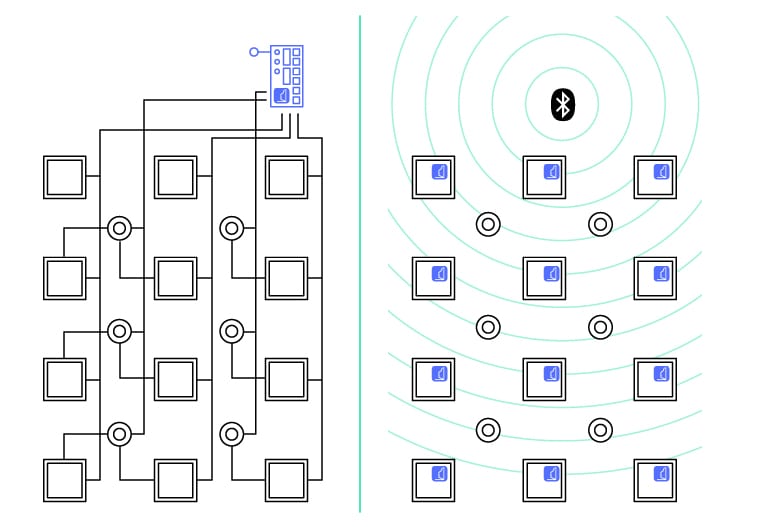
How the System Works
Qualified Bluetooth® mesh is a global wireless networking standard which expands the capabilities of the Bluetooth® radio communication by introducing a new type of network topology.
Enabling many-to-many device connectivity, qualified Bluetooth® mesh is optimized for creating large-scale networks consisting of thousands of devices.
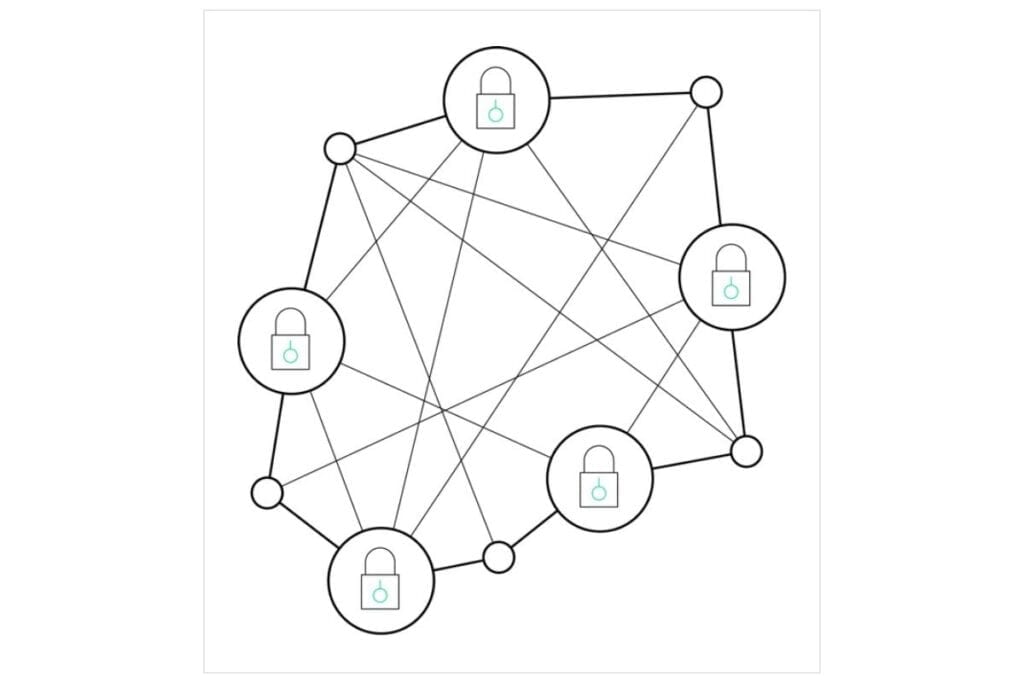
Myths of Qualified Bluetooth® Mesh
Not true: Bluetooth mesh is not “your father’s Bluetooth”. It has been designed with commercial / industrial use cases in mind. Bluetooth mesh is more secure and scales better than competing technologies.
Not true for Bluetooth mesh: The architecture of Bluetooth mesh addresses precisely these wireless challenges. Works as well as wired!
Not true: Bluetooth defines both linear and perceptual (logarithmic) dimming curves as well as precise device behaviors WRT the dimming curves. Tests for the curves and their behaviors are covered by the Bluetooth Mesh Test Suite and are part of the Qualification program.
Not true: security is at the heart of the design of Bluetooth mesh networking and its use is mandatory. It uses the most advanced encryption standard and device authentication preventing third parties from trying to break into smart lighting infrastructures.
Not true: Range depends on surroundings, radio performance and antennas. While the radio performance and antennas are pretty static for a given Bluetooth device, the surroundings can vary a lot. Outdoors, in an open field, you can get a range of up to a hundred meters. Indoors, in normal condition it’s about 30m. Bluetooth, thanks to its mesh topology, is able to cover big networks.
